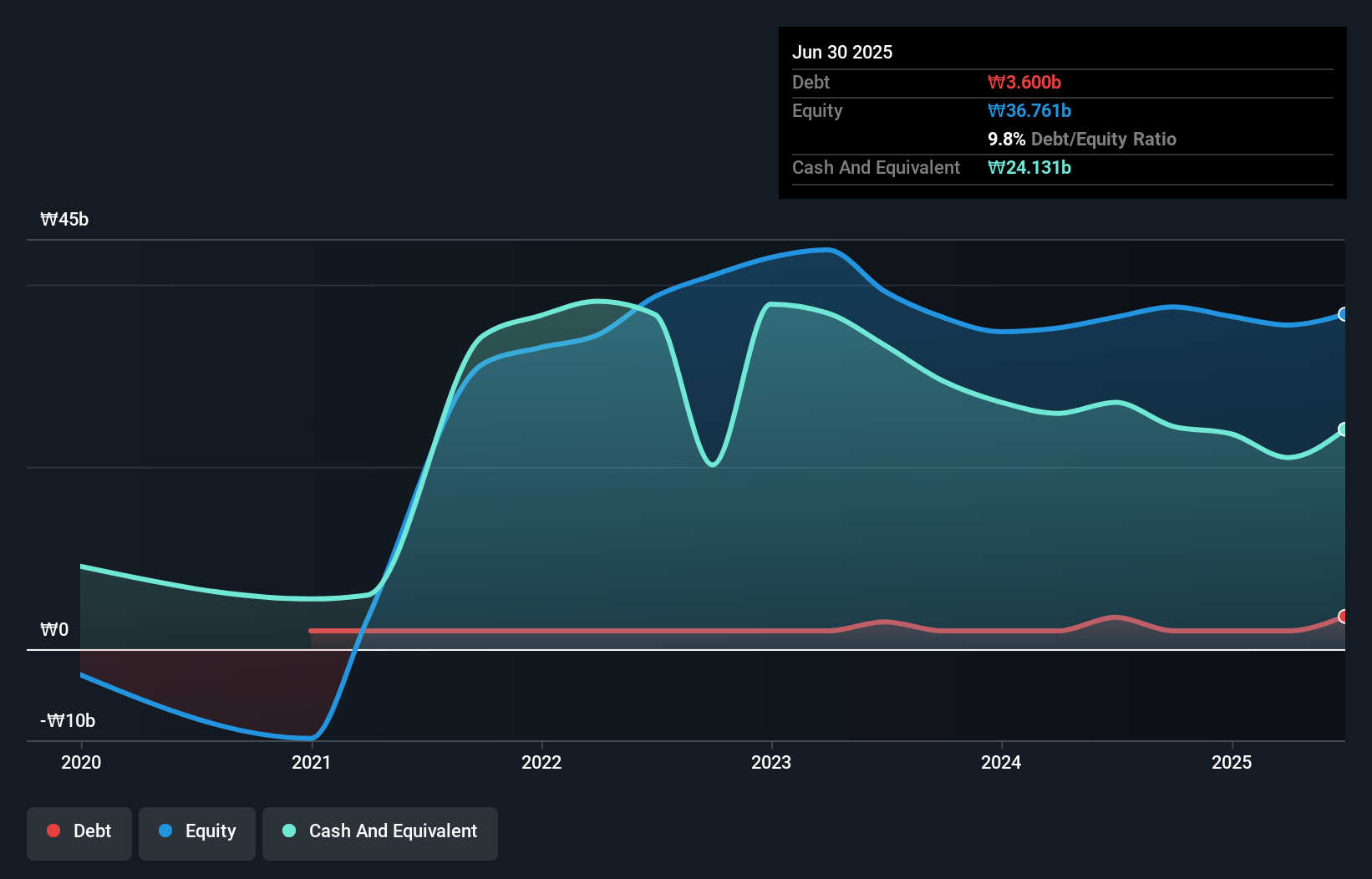- South Korea
- /
- Professional Services
- /
- KOSDAQ:A376980
Wantedlab (KOSDAQ:376980) Has Debt But No Earnings; Should You Worry?
The external fund manager backed by Berkshire Hathaway's Charlie Munger, Li Lu, makes no bones about it when he says 'The biggest investment risk is not the volatility of prices, but whether you will suffer a permanent loss of capital.' So it might be obvious that you need to consider debt, when you think about how risky any given stock is, because too much debt can sink a company. Importantly, Wantedlab, Inc. (KOSDAQ:376980) does carry debt. But the more important question is: how much risk is that debt creating?
What Risk Does Debt Bring?
Debt assists a business until the business has trouble paying it off, either with new capital or with free cash flow. Part and parcel of capitalism is the process of 'creative destruction' where failed businesses are mercilessly liquidated by their bankers. However, a more frequent (but still costly) occurrence is where a company must issue shares at bargain-basement prices, permanently diluting shareholders, just to shore up its balance sheet. Of course, plenty of companies use debt to fund growth, without any negative consequences. The first thing to do when considering how much debt a business uses is to look at its cash and debt together.
How Much Debt Does Wantedlab Carry?
The chart below, which you can click on for greater detail, shows that Wantedlab had ₩3.60b in debt in June 2025; about the same as the year before. However, it does have ₩24.1b in cash offsetting this, leading to net cash of ₩20.5b.

How Strong Is Wantedlab's Balance Sheet?
According to the last reported balance sheet, Wantedlab had liabilities of ₩9.49b due within 12 months, and liabilities of ₩6.04b due beyond 12 months. On the other hand, it had cash of ₩24.1b and ₩2.48b worth of receivables due within a year. So it actually has ₩11.1b more liquid assets than total liabilities.
This surplus liquidity suggests that Wantedlab's balance sheet could take a hit just as well as Homer Simpson's head can take a punch. On this view, lenders should feel as safe as the beloved of a black-belt karate master. Simply put, the fact that Wantedlab has more cash than debt is arguably a good indication that it can manage its debt safely. The balance sheet is clearly the area to focus on when you are analysing debt. But it is Wantedlab's earnings that will influence how the balance sheet holds up in the future. So when considering debt, it's definitely worth looking at the earnings trend. Click here for an interactive snapshot.
Check out our latest analysis for Wantedlab
Over 12 months, Wantedlab made a loss at the EBIT level, and saw its revenue drop to ₩35b, which is a fall of 5.9%. We would much prefer see growth.
So How Risky Is Wantedlab?
While Wantedlab lost money on an earnings before interest and tax (EBIT) level, it actually generated positive free cash flow ₩2.6b. So taking that on face value, and considering the net cash situation, we don't think that the stock is too risky in the near term. With mediocre revenue growth in the last year, we're don't find the investment opportunity particularly compelling. The balance sheet is clearly the area to focus on when you are analysing debt. However, not all investment risk resides within the balance sheet - far from it. These risks can be hard to spot. Every company has them, and we've spotted 1 warning sign for Wantedlab you should know about.
When all is said and done, sometimes its easier to focus on companies that don't even need debt. Readers can access a list of growth stocks with zero net debt 100% free, right now.
Valuation is complex, but we're here to simplify it.
Discover if Wantedlab might be undervalued or overvalued with our detailed analysis, featuring fair value estimates, potential risks, dividends, insider trades, and its financial condition.
Access Free AnalysisHave feedback on this article? Concerned about the content? Get in touch with us directly. Alternatively, email editorial-team (at) simplywallst.com.
This article by Simply Wall St is general in nature. We provide commentary based on historical data and analyst forecasts only using an unbiased methodology and our articles are not intended to be financial advice. It does not constitute a recommendation to buy or sell any stock, and does not take account of your objectives, or your financial situation. We aim to bring you long-term focused analysis driven by fundamental data. Note that our analysis may not factor in the latest price-sensitive company announcements or qualitative material. Simply Wall St has no position in any stocks mentioned.
About KOSDAQ:A376980
Excellent balance sheet and fair value.
Market Insights
Community Narratives



